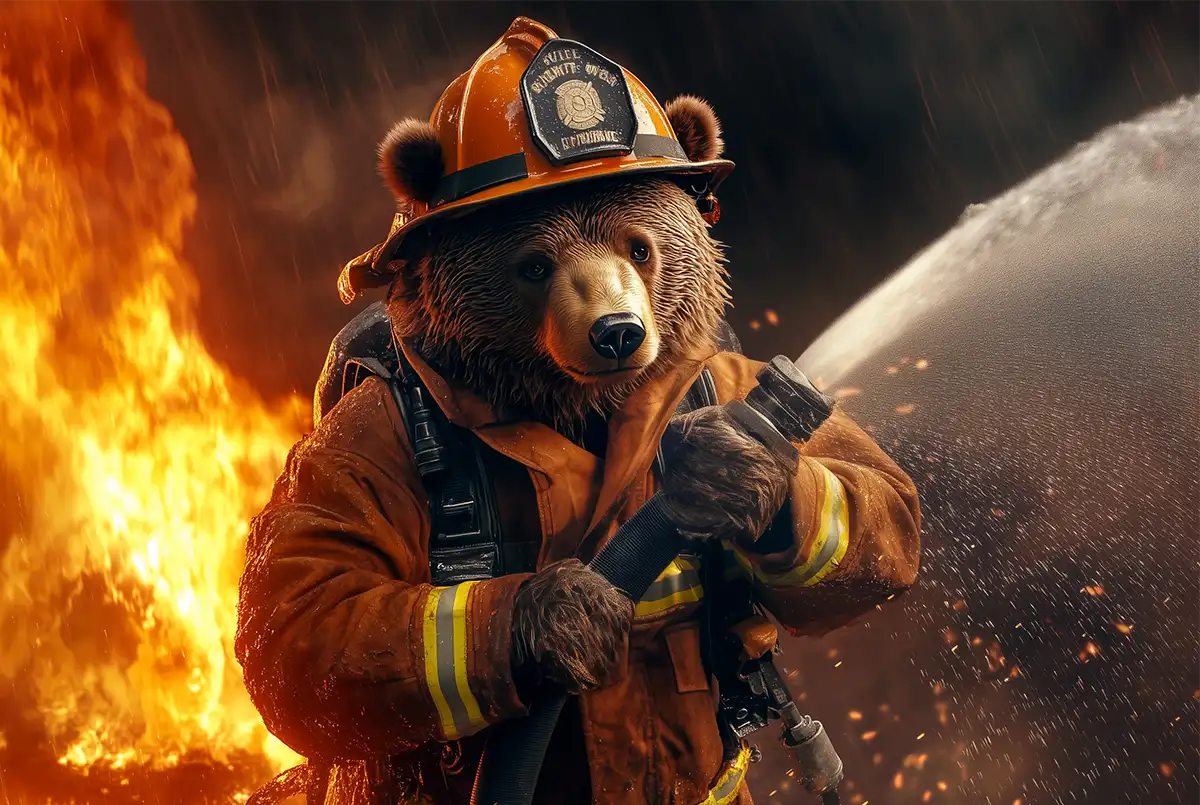
Threaded fire department coupling: Reliable in use
Sure, a leaky connection can also be annoying with a garden hose or if you accidentally flood the bathroom because the fittings are not completely tight. But do you know where such a mishap can quickly become really dangerous? When it comes to extinguishing fires. That's why fire department couplings are a hot topic.
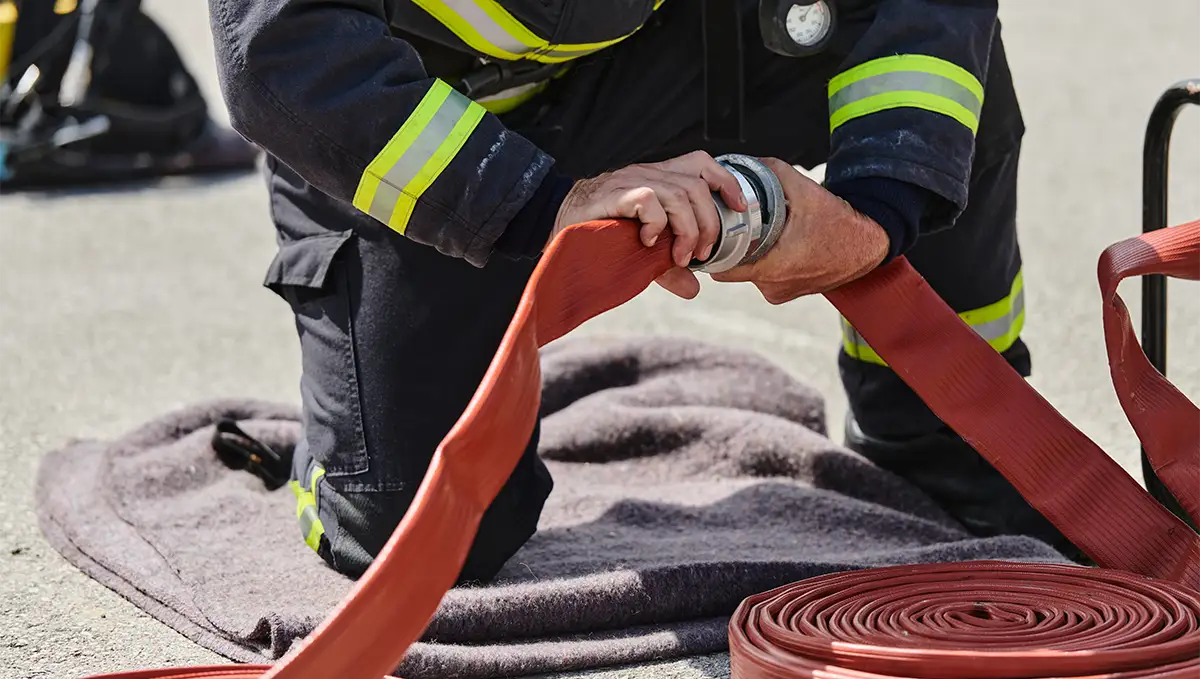
When connecting hoses for the fire department, it is of course not just the seal that plays a role. The coupling must be quick and easy to use and be able to withstand the enormous loads that occur when water moves through pressure hoses. There are various approaches to achieving this. Of course, we are particularly interested in those that work with the help of a thread. But other variants such as the Storz couplings are also worth a quick look! So let's get started.
These couplings are used by the fire department
The need to extinguish fires has haunted mankind since time immemorial and across all continents, and since the 18th century at the latest, this has been done more and more with the help of fire hoses. The topic of fire hose couplings is correspondingly complex, diverse and difficult to grasp. It is almost impossible to provide a complete overview.
However, there is one striking distinction: there are couplings with and without threads. And those without threads have a gender - or not. What does that mean? Let's have a look.
Fire department coupling without thread
Even if we are of course a little biased - couplings without threads are no worse than those with threads. The difference is simply due to different traditions that developed long before global standards.
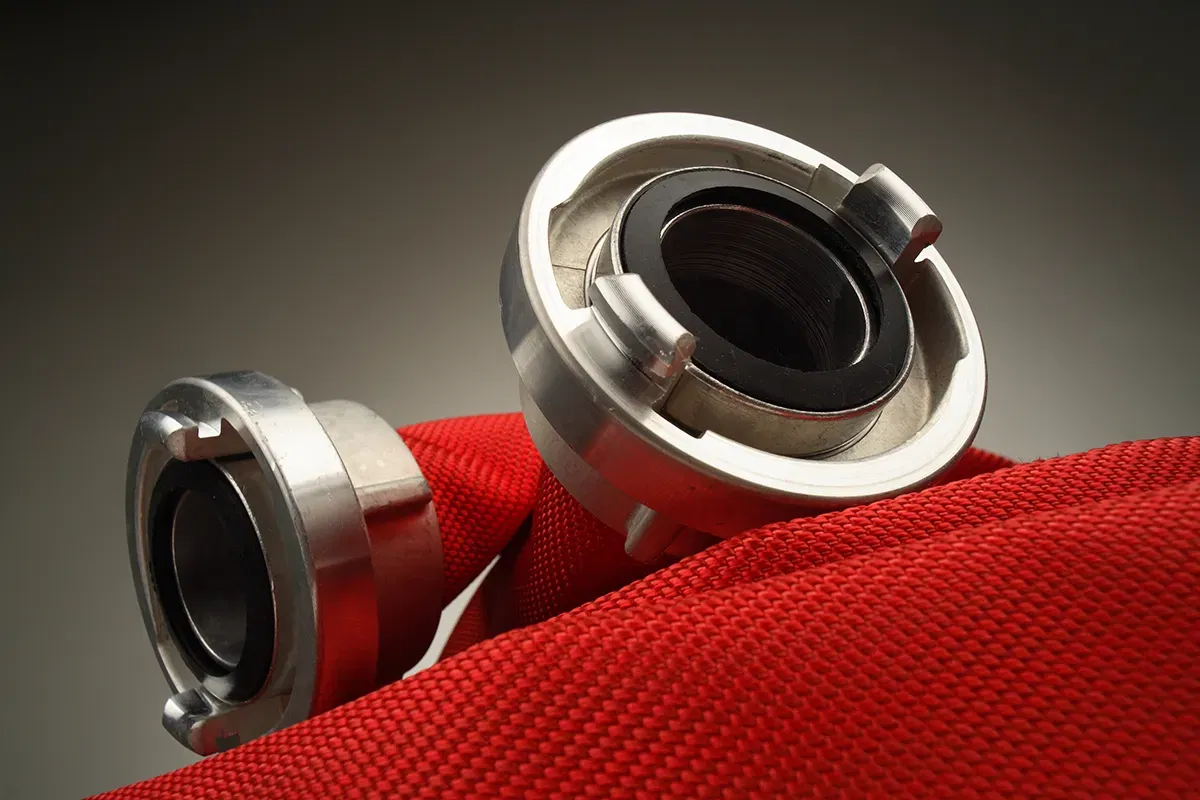
Why the coupling has a gender
The first question that arises with the fire department coupling without a thread is: hermaphrodite or not? In English, the terms male and female are also used. This refers to whether both parts of the coupling are identical or not. Two male couplings cannot be joined together, nor can two female couplings.
The Storz coupling is widely used in Germany
In this country, everything has been standardized since the 1930s when it comes to fire department couplings. The Storz coupling, named after its inventor Guido Storz and used throughout the German-speaking world, works without a thread. The Storz coupling uses two identical connection fittings (i.e. it is hermaphrodite) and is therefore particularly easy to use because it can be easily coupled even during a hectic operation. However, the Storz coupling is now also widely used in completely different areas of industry and agriculture.
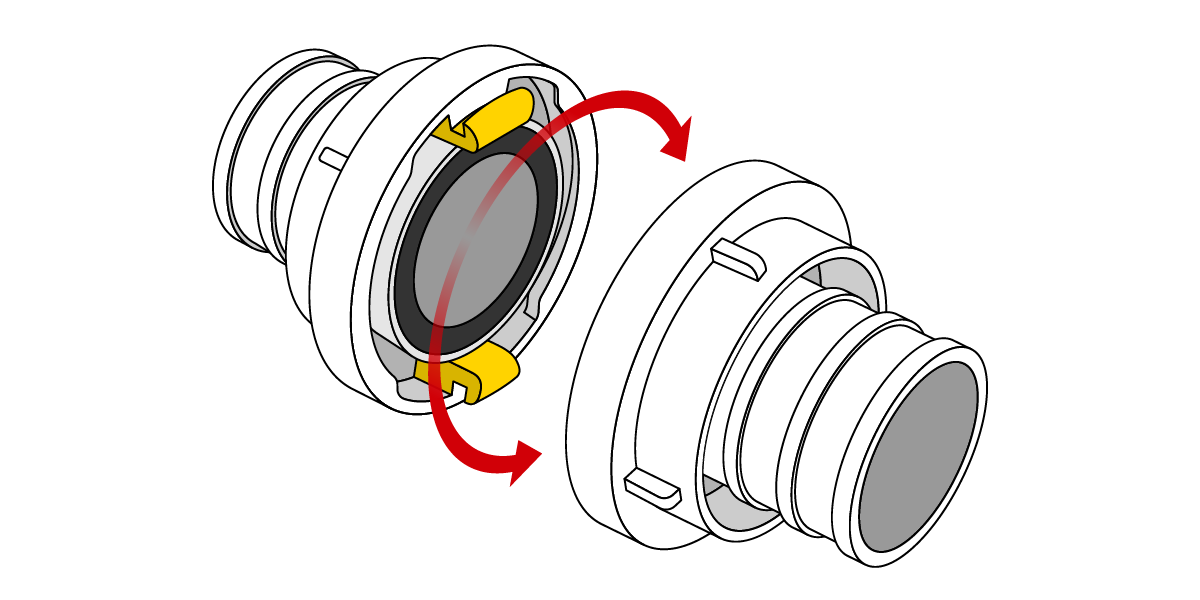
Fixed couplings with male thread and female thread
In addition to couplings without threads, there is fortunately also a long range of fire department couplings that work with threads. Of course, you won't find a hermaphrodite firefighter coupling in this category, as such a connection can only ever be created by combining an external thread with an internal thread.
Where fire department couplings are equipped with threads
You can find a threaded fire department coupling at fire departments all over the world. In Europe, for example, the UNI coupling from Italy. In Germany itself, fire departments sometimes use fixed couplings in addition to Storz couplings, for example to connect hoses to hydrants. However, threaded couplings are particularly common in the USA.
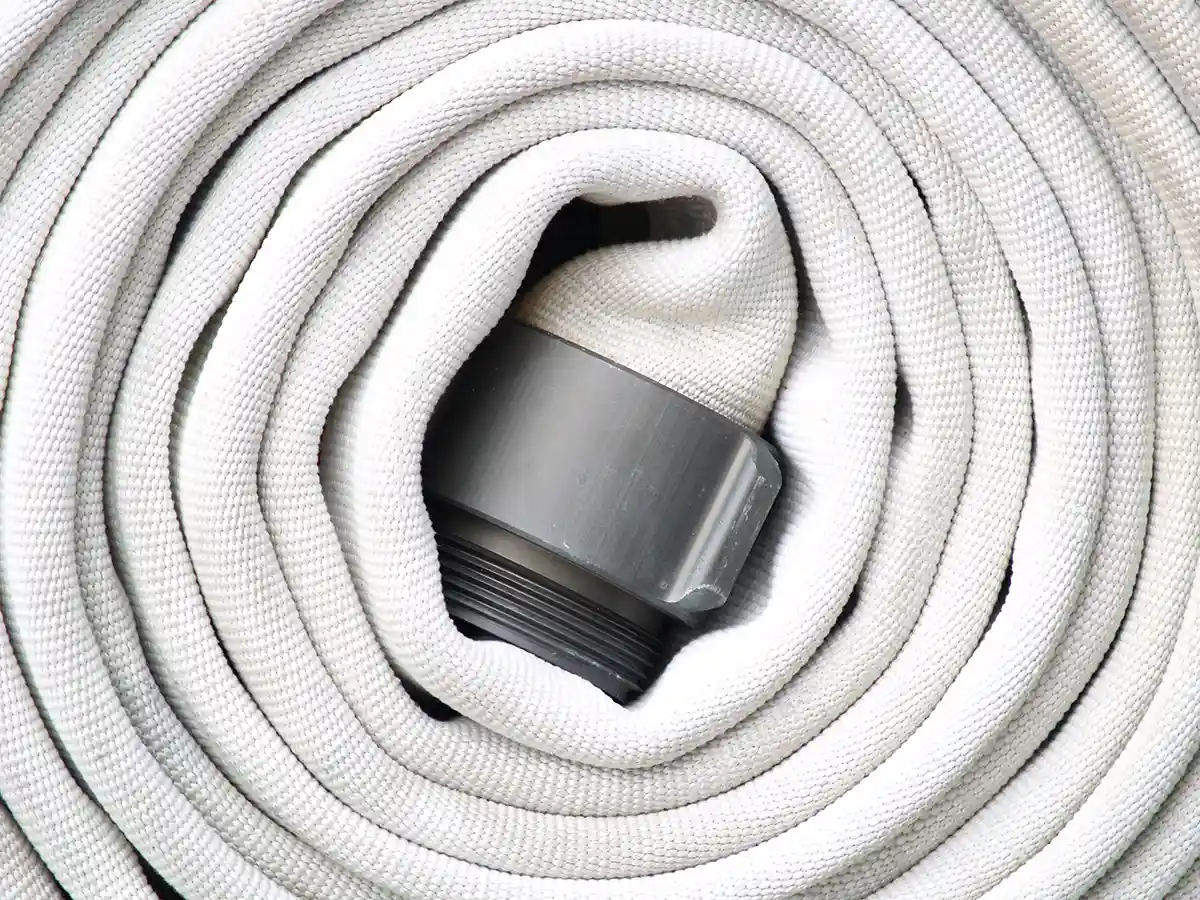
Fire department coupling in the USA
In the USA, the fire department coupling with male and female threads is the norm. However, this does not mean that there is a fixed standard here. Many different thread types are still used throughout the country, which sometimes leads to problems.
Accidents due to incompatible couplings
In fact, a mismatched fire department coupling with a thread has often led to devastating accidents in the past. This is due to the fact that neighboring fire departments cross the borders of their operational area to assist their colleagues during large fires. However, if the size of the thread on the hose nozzle is different from that on the hydrant, all good intentions are of no use.
Attempts at standardization
Based on this experience, the USA has been making repeated attempts to implement a national standard for almost 150 years. And although these efforts have been paying off for several decades, complete uniformity has not yet been achieved. As an interim solution, the fire department works with adapters and special tools that make it possible to connect threads of different sizes.
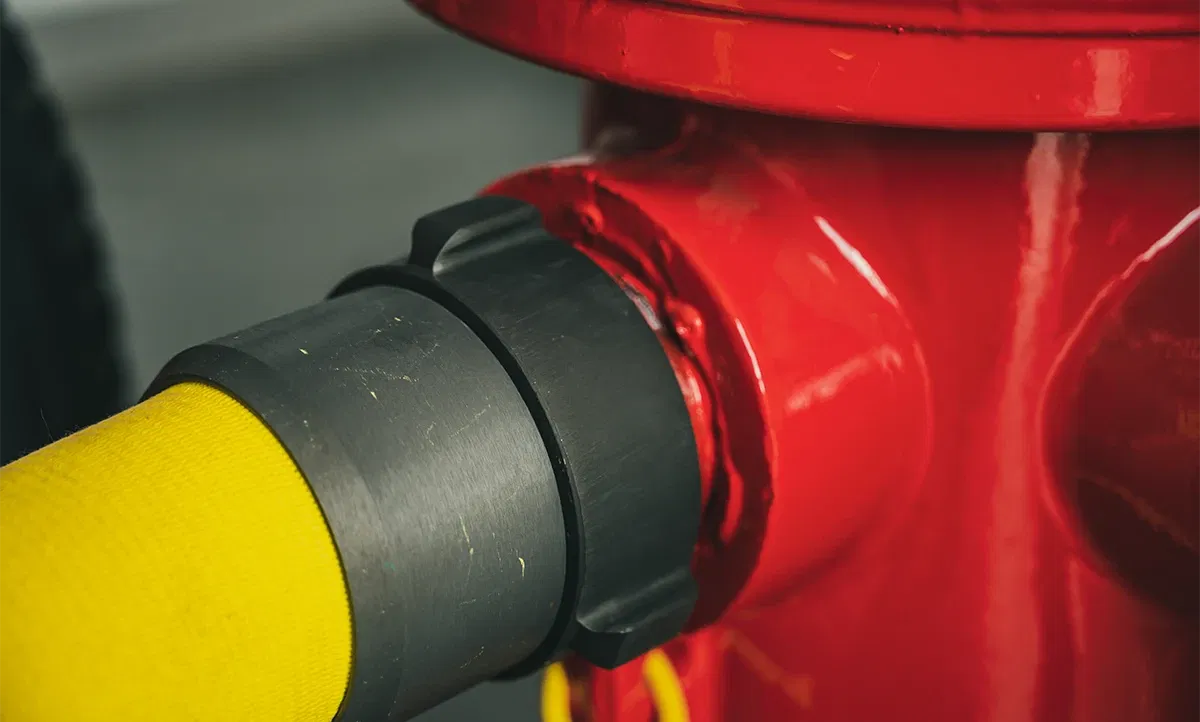
Which threads are on the fire department coupling?
Even if standardization has not yet fully succeeded, the most commonly used thread for couplings still comes from the USA. The official designation is National Hose (NH) or National Standard Thread (NST), but due to the area of application, this type of thread is often simply referred to as a fire hose thread.
The NH is a cylindrical pipe thread. A seal is achieved mechanically via a flat gasket, which is part of the hose equipment.
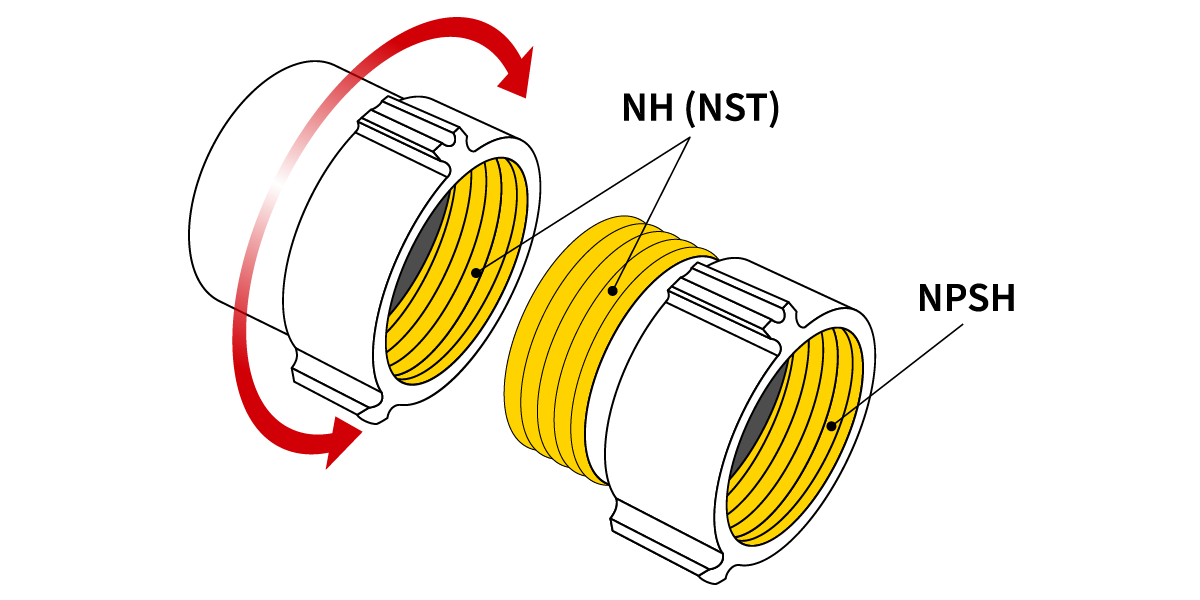
There is also the National Pipe Straight Hose Thread (NPSH). This type of thread corresponds to the American pipe thread NPT with the difference that the NPSH is not tapered. This makes it possible to connect an NPT external thread with an NPSH internal thread - but such a connection is not possible in the other direction.
We prefer to leave putting out fires to others, but at BAER we are always on hand to help you with any problems, big or small, relating to thread machining! You can find thousands of products and accessories in our online store - fast delivery guaranteed. And if you have any questions about an item or other concerns, our customer service will be happy to help.
